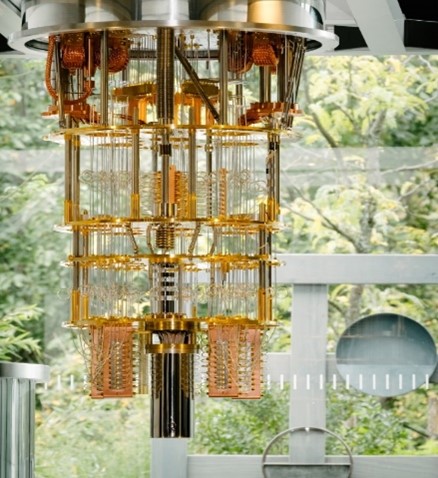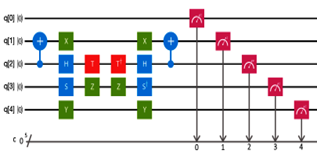Quantum Computing
Quantum Computing at ITS Research Computing
The era of computing using the quantum computer (QC) is coming, which is expected to revolutionize computing in many areas of scientific research such as physics, chemistry, material sciences, drug design, finance, AI/ML, cybersecurity, etc., in the coming decades. This website provides a brief introduction to QC and summarizes the QC services that we offer here at UNC Research Computing.
What is a quantum computer?
A quantum computer is a device that uses quantum mechanics to perform computation and data manipulation. Different from classical computers like laptops and LINUX clusters, it uses quantum bit, or qubit, as its basic information unit. A classical bit has only 0 and 1 as its possible values, but a qubit has not only the value of 0 and 1 but also any linear combination of these two values, so a qubit contains much more information than a classical bit. A quantum computer employs superposition, coherence, entanglement, and other quantum mechanical properties to perform massively parallel computations that would never be possible on classical computers. These features enable QC to solve many classically difficult problems with exponential or polynomial speedup.
A brief history of quantum computers
QC was proposed by Nobel Laureate Richard Feynman in 1981. In 1994, Peter Shor of MIT developed a quantum algorithm for finding prime factors with exponential speedup. In 1996, Lov Grover invented a quantum database search algorithm with quadratic speedup. In 1998 Isaac Chuang, Neil Gershenfeld and Mark Kubinec created the first two-qubit quantum computer that could perform computations. In 2017, IBM released the first commercially usable quantum computer. In 2019, Google claimed quantum supremacy, a performance by QC that was infeasible on any classical HPC computers.
 IBM Quantum Computer
IBM Quantum Computer
QC services provided by UNC ITS Research Computing
Since August 2021, we have been providing QC training sessions in the format of 2-hour short courses to UNC-CH campus users. No prior knowledge of quantum mechanics is required. It introduces basic concepts, major components, and key applications of QC. It is based on IBM Qiskit API to demonstrate how real quantum computations can be done. It is offered three times a year. Click the training link for the upcoming session. Two future short courses on QC, one on quantum algorithms and the other on QC applications to quantum chemistry including VQE and QAOA, are in the planning phase.
 quantum circuit
quantum circuit
QC resources in RTP area
- NCSU IBM Q Hub: https://quantum.ncsu.edu/
- Duke Quantum Center: https://quantum.duke.edu/
- Triangle QC Seminar Series: https://quantum.ncsu.edu/news-events/quantum-computing-seminars/
Useful external QC links
- Quantum computing: https://en.wikipedia.org/wiki/Quantum_computing
- IBM Quantum: https://www.ibm.com/quantum
- Google quantum: https://quantumai.google/
- Microsoft quantum: https://azure.microsoft.com/en-us/solutions/quantum-computing/
- Qiskit: https://www.youtube.com/qiskit
- Free access to quantum computers: https://quantum-computing.ibm.com/
Contact us
If you have any questions regarding to QC, please contact research@unc.edu. If you wish to start QC training or are interested in performing real QC calculations, send your inquiries to shubin@email.unc.edu.
Last Update 2/15/2026 5:32:38 PM